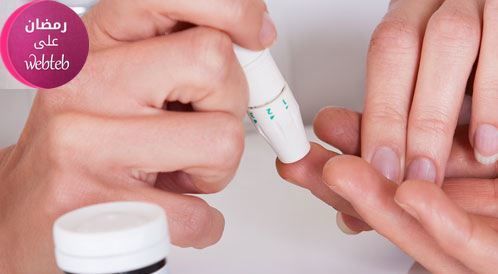Under the sponsorship of advice for diabetics in Ramadan when Ramadan’s blessed month begins with a new diet, this shift from one food pattern to another is in a sharp way that causes many challenges to the body, especially for diabetics. There are types and levels of diabetes, as there are patients who should refrain from fasting and seeing a doctor in this regard. Here is the most important advice for diabetics in Ramadan! Fasting could pose a danger to diabetics. Fasting can pose a threat to diabetics, especially those who regularly take insulin; This is due to the failure to take medication during, the sugar balance in the body can violate. A lack of food quickly delivers the blood sugar level during fasting due to the lack of food supplies for the body. Sugar is the largest source of energy in the body. In the case of a lack of energy supply, sugars available in the body are consumed, but it is limited, and if the body reduces, the body is forced to use fat stores to gain energy, but it is accompanied by side effects such as: irritation, nervousness, weakness, fatigue, dizziness and headaches. What drinks should you avoid? You should drink 8-10 cups of water a day, and you should avoid fluids that cause high blood sugar levels such as juice, soft drinks, energy drinks and hot drinks with sugar. Carob Syroop There are many health benefits for Carob drink, but it is not suitable for diabetics because it contains a high percentage of sugar. Follow -Up of sugar to avoid health problems that can result from disorders and changes in blood sugar levels. The blood sugar level must be constantly followed and measured, especially in diabetics accredited on insulin. Exercise prefers exercise or physical activity after eating breakfast at an hour or two, it should be done within the boundaries of reason and do not practice stressful exercises or activities, while sports during the fasting are absolutely unpopular with diabetics and it is preferable to avoid it. A meal balanced on the suhoor dinner to be balanced, ie without high calories such as oils and fats, avoid salt food to avoid thirst, as well as foods rich in sugar such as sweetened drinks and drops. Breakfast should not eat a diabetic patient during breakfast, so that the sugar level does not rise sharply, and the amount of starch should be determined for the usual level. By Mona Khair
Tips for diabetics in Ramadan: Look with photos
